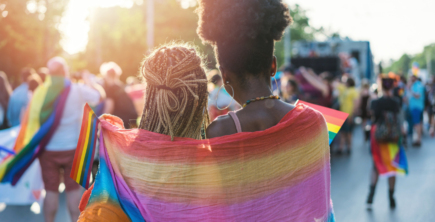
LGBT
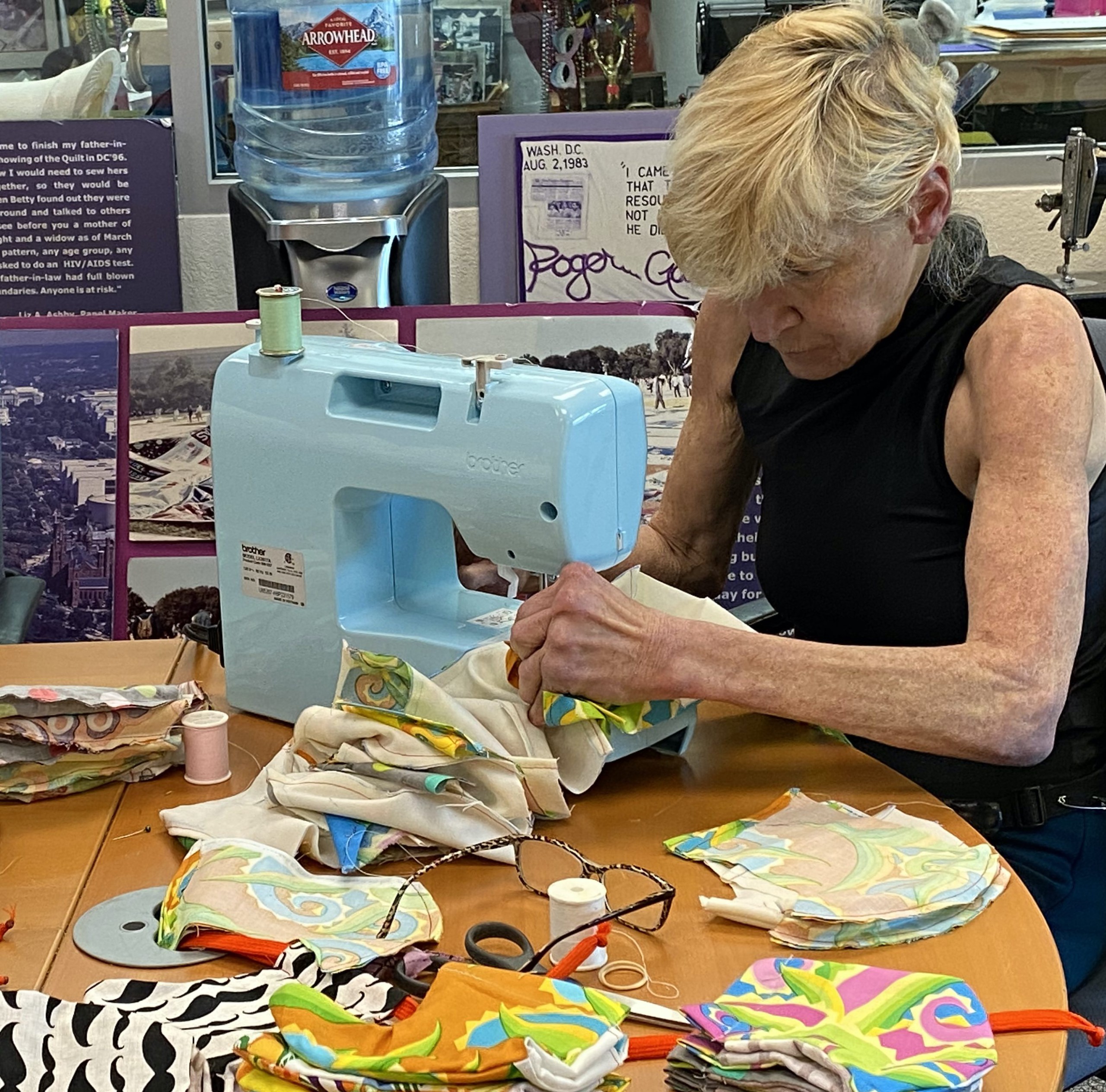
Gert McMullin, shown creating masks using leftover materials from the AIDS Memorial Quilt.
It was early April, and the staff of the National AIDS Memorial (NAM) were holding their daily Zoom call. For months they had been preparing to mark the return—after 19 years—of the AIDS Memorial Quilt to San Francisco’s Golden Gate Park. Now, COVID-19 social distancing measures had put everything on hold, postponing all NAM’s planned events, including “coming out parties” across the city, a big ceremony in Golden Gate Park and the opening of an education center.
“Why don’t we use our sewing skills and left-over fabric to make masks for first-responders?” Twenty-four hours later, the sewing began.
“We were feeling really frustrated that day. We were worried about friends with HIV-AIDS who are at heightened risk for COVID-19 because they are immunocompromised,” recalls Mike Smith, a co-founder of the AIDS Memorial Quilt. “And some of our staff were even starting to experience PTSD symptoms brought on by a new epidemic. Then suddenly my colleague Gert McMullin had a great idea: Why don’t we use our sewing skills and left-over fabric to make masks for first-responders?” Twenty-four hours later, the sewing began.
In 1985, members of San Francisco’s gay community launched the AIDS Memorial Quilt project to commemorate the growing number of young people dying from this insidious new virus. Each three-by-six-foot panel—symbolizing the size of a grave—would be designed by a family member or friend in honor of a loved one who had died from the disease. Sewn together, the quilt would unite all of these people in mourning.
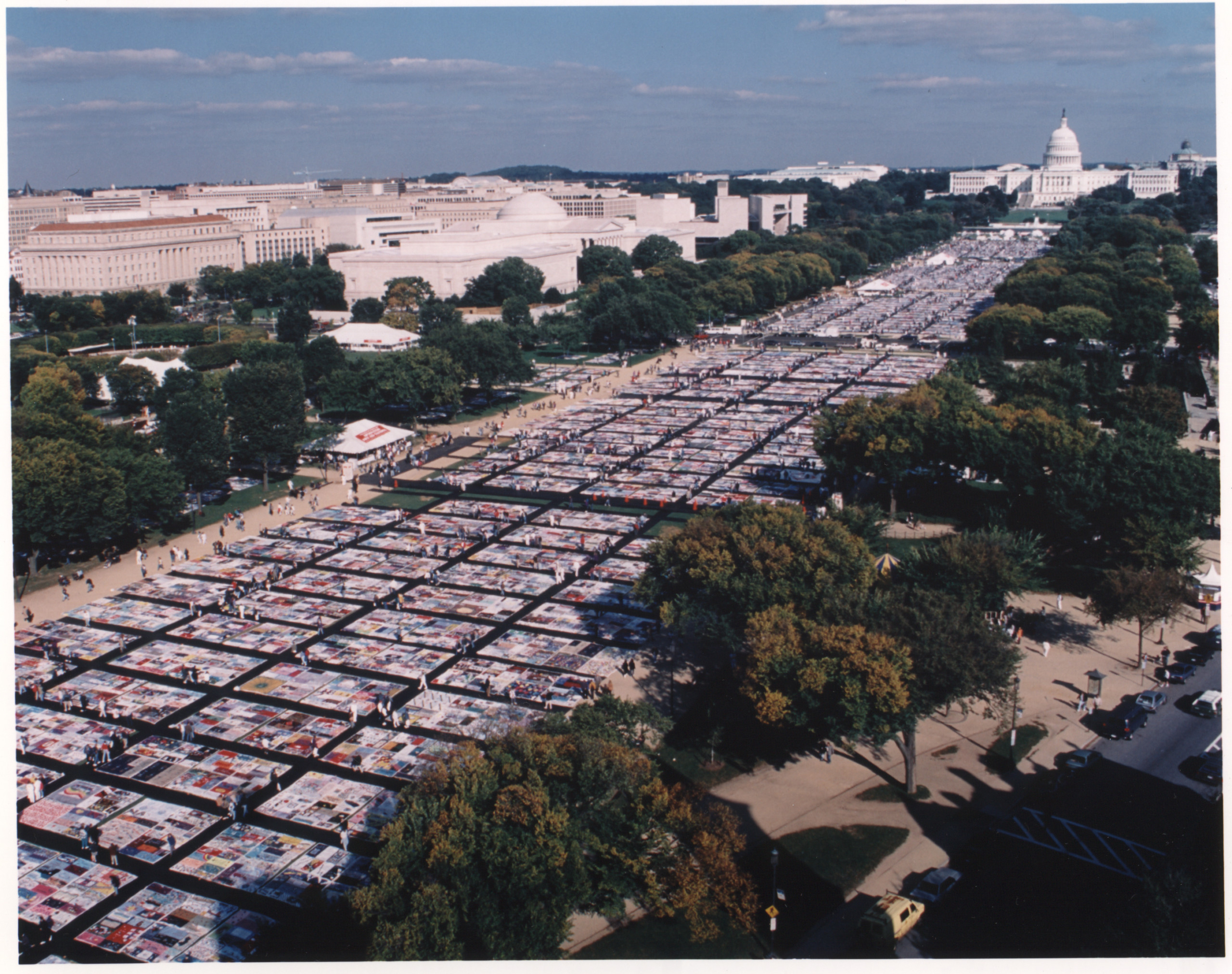
Declared a National Cultural Treasure by Congress in 2005, today the quilt comprises over 48,000 panels commemorating about 92,000 lives, with new panels still being added.
Tides has long been an important ally to NAM, which first became a Tides’ social venture partner in 1996. “The quilt is one of the most valuable testaments we have to the HIV-AIDS epidemic. While it is uniquely personal, it is also collective, providing an anchor-point for us all to acknowledge this time in history and ensure that the people who died are never forgotten,” says Joel Bashevkin, director of Social Ventures at Tides. “It also serves a learning function. This is about civil rights and the right to be treated fairly and equitably from a public health perspective.”
Bashevkin and his team first learned about NAM’s new mask project when, following the onset of COVID-19 in the US, Tides reached out to its social venture partners to see if they were experiencing increased demand for services. Quickly grasping the value of the new initiative, Bashevkin and his team decided to provide a new, unrestricted grant from Tides’ Stronger Together COVID-19 Response Fund. Established at the start of the crisis, the new fund provides emergency response support for the neediest of Tides’ 140+ social ventures.
Bay Area Community Services (BACS) was the first recipient of the NAM masks. Providing housing and behavioral health services for some 8,000 people experiencing homelessness and mental health crises, the BACS team was in desperate need of masks for both staff and clients. “While most of us have the means to buy masks, there are members of our society who don’t, and most of the people BACS serves — the vast majority — want masks,” says BACS Associate Director of Programs Jonathan Russell.
When COVID was rising, we had people in gurneys in the hallways here just like during the AIDS epidemic. A lot of doctors and nurses were scared. Some of them were here back then, and now once again we were fighting a disease we don’t know anything about.
BACS has received about a thousand of the NAM masks, which are much appreciated for their quality and distinctive history. “They are ‘homemade’ in the best sense of the term, clearly with a lot of love and attention. This makes them special to people who are often abandoned or forgotten by society,” explains Russell. “Some of our clients have personal experience with HIV and know about the quilt. To them, the masks may represent the stories of suffering, but also those of overcoming.”
Nelson Yee, a registered nurse at St. Mary’s Medical Center in San Francisco, heard about the masks from a friend. Staff were rationing personal protective equipment (PPE) and being asked to reuse their masks, so says Yee, “I decided to just try sending an email to NAM to see if we could get some masks. I was really surprised when Gert got back to me so quickly. She asked, ‘So how many do you need?’ I didn’t want to be greedy but told her that we were really needy.” Two days later the two met in front of the hospital, and, keeping a healthy social distance, McMullin provided Yee with twenty new masks. Then the two exchanged big air hugs.
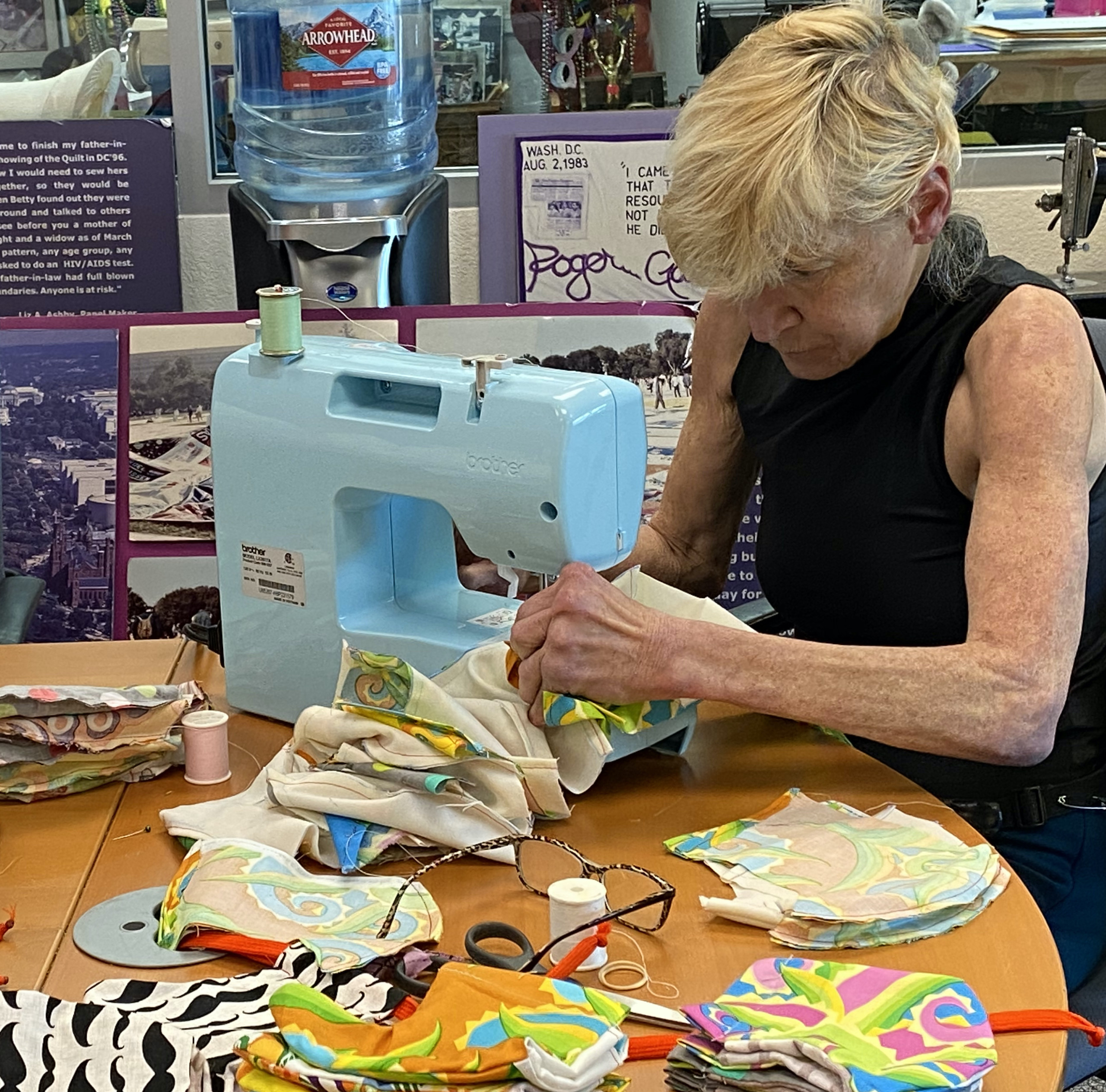
Gert McMullin, shown creating masks using leftover materials from the AIDS Memorial Quilt.
“When COVID was rising, we had people in gurneys in the hallways here just like during the AIDS epidemic. A lot of doctors and nurses were scared. Some of them were here back then, and now once again we were fighting a disease we don’t know anything about. As soon as they heard about the masks, they all wanted one.” Yee got back in touch with NAM, which has since provided him with several dozen more masks.
“The material is not medical grade, but the NAM team was really clever and designed the masks so that they can go over an N95 and provide further protection. And the patterns are so whimsical, they bring a big smile to patients when they see us wearing them.”
In the six weeks since they started, NAM volunteers, sewing in their own homes while sheltered in place, have produced over 2,000 masks. There’s a task for everyone. “One of the really important things we accomplished with the AIDS quilt was to inspire people to see that there is always something you can do to help. Sometimes I think that this lesson is as important as the Quilt itself,” says Smith, adding with a laugh, “I’m a pattern-cutter, that’s the low-tech skill I have. But it feels really good to be able to do something to help.”
——–

LGBT
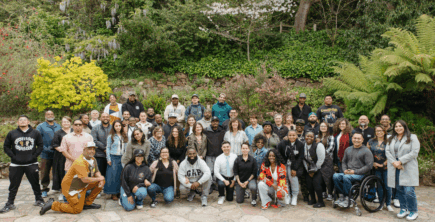
Corporate Partners
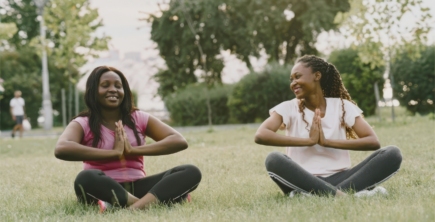
Philanthropy

Read the stories and hear the voices of social change leaders fighting for justice.